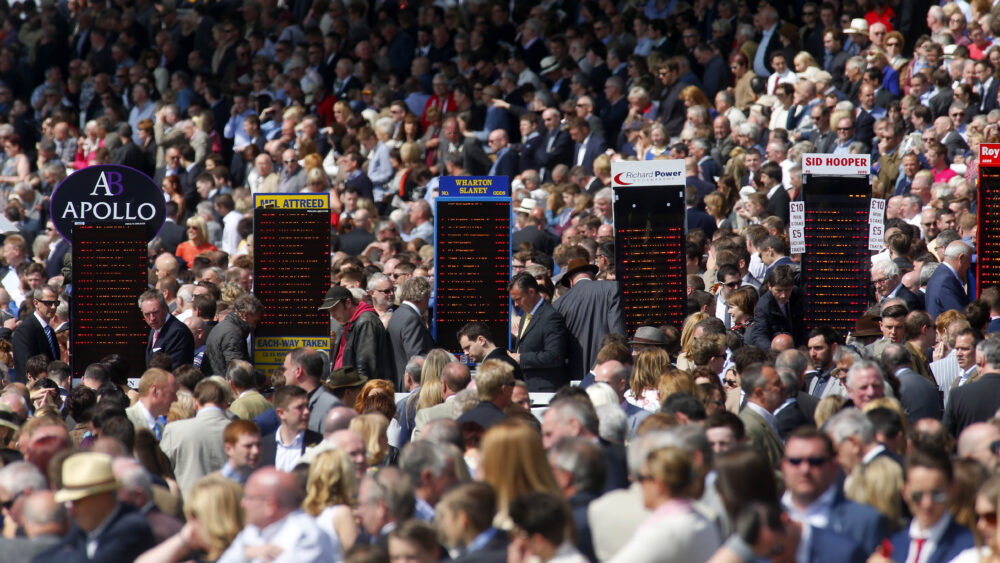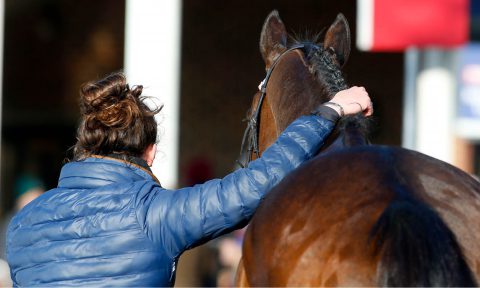The Gambling Review so far – a BHA Blog

A lot has changed since the liberalisation of betting in the UK in 2005: bettors moving from the shops to online and electronic devices, a betting market boom, followed by an ongoing period of regulatory pressure that bookends a global pandemic, writes Jack Barton, Policy and Advocacy Manager at the BHA.
These changes have helped shape the modern British racing industry.
As the Government’s review of the 2005 Gambling Act continues, this blog explores key issues for racing such as affordability checks and sponsorship and advertising, and how the industry has used its position as a key voice in the gambling debate.
A brief history
Following Government legislation in 2018 on Fixed Odds Betting Terminals (FOBTs), it became clear that further reforms to an expanding betting market would be pursued by politicians.
At the 2019 General Election every major party manifesto carried commitments to investigate Gambling legislation, ranging from a review of the 2005 Gambling Act, to looking at staking limits, the introduction of a statutory levy to fund prevention/treatment services, or a ban on gambling advertising at sporting events. In Labour’s case, all four policies were promised.
While the Conservative Party secured a majority, a cross-party consensus agreed that gambling legislation needed reform.
The Department of Culture, Media and Sport (DCMS) began its review of the Gambling Act in late 2020, releasing a wide-ranging Call for Evidence that suggested a major overhaul of Gambling legislation would follow, with six specific areas of focus including:
- Online protections – players and products
- Advertising, sponsorship and branding
- The Gambling Commission’s powers and resources
- Consumer redress
- Age limits and verification
- Land based gambling
While the deadline for evidence closed in March 2021, political events caused a two-year delay to the Government’s release of the White Paper.
While no specific timeframes were set out by DCMS, few could have envisaged that we’d reach 2024 with the review far from conclusion. And with a Gambling Bill notably missing from November’s King’s Speech, there are questions as to whether any legislation will be passed before this year’s General Election.
The unique relationship
Since the FOBT reforms, the debate around gambling has become polarised between those who believe that the majority of people who bet do not experience harm – as well as the rights of an individual to choose how to spend their disposable income – and those who think gambling needs to be restricted given the harm it can cause to a minority of individuals.
Racing agrees with the need to protect those who experience – or are at risk of experiencing – gambling-related harm and acknowledges that it can occur when betting on racing. At the same time, it is clear that millions enjoy betting responsibly on horse racing without suffering any harm and that compared to other betting activities racing is relatively “low risk” and is differentiated from other forms of gambling as a game of skill rather than pure chance.
Racing’s relationship with betting is unique in sport. The symbiotic relationship between the two is such that racing is the only sport to benefit from a statutory Levy. That the Government is currently reviewing the structure of Levy arrangements to ensure Racing is not unduly affected by the ongoing Gambling Act Review only underlines the strength of the relationship’s inter-dependency.
This relationship, which goes back hundreds of years, is responsible for many of racing’s vital income streams including not just the Horserace Betting Levy, but also media rights payments and sponsorship and advertising, all of which makes up an overall contribution of about £350m to Racing’s finances each year.
The racing industry could not exist in its current size – 59 racecourses, over 500 trainers caring for over 18,000 thoroughbred horses, with 85,000 jobs supported across the rural economy – without this contribution.

However, such clear interdependencies mean that Racing is financially vulnerable to regulatory changes in the betting sector.
We believe the Government understands this and in 2021, then Gambling Minister Chris Philp committed to assessing any changes to gambling regulations for their impact on British racing, owing to the economic contribution the industry makes, especially in rural areas. It is unfortunate that the White Paper assessment of £8.4m – £14.9m per annum in lost income caused by the proposed gambling legislation reforms proved to be a significant underestimate of the real cost, which we believe to be closer to £50m a year. We are working with DCMS to provide a more accurate figure.
The White Paper is clear that British racing needs an ‘appropriate level of funding’ through the Horserace Betting Levy to mitigate the impacts of new gambling legislation. We hope clarity on future Levy arrangements will be provided soon.
Affordability checks
Affordability checks – or ‘financial risk checks’ as they are now officially called – were first proposed by the Gambling Commission (GC) in 2020 in its ‘Remote Customer Interaction’ consultation at levels as low as £100 per month, with an individual having to provide documentation to an operator such as a payslip or P60 to prove that they could support that level of spending.
Opposition to those draconian proposals was swift. An effective letter writing campaign in 2021 by Racing highlighting a potential annual economic impact of up to £100m on top of Covid-19 impacts meant the proposals were abandoned. However, delays to the review allowed a scenario where betting operators introduced their own affordability checks in the interim.
Depending on who you speak to, the reason for this is either to protect customers and avoid further regulatory fines, or business decisions dressed up as customer safety measures.
These checks are frustrating and limiting the customer experience for racing bettors given the lack of uniformity between operators. They have already cost racing significant income, with the 2022-23 GC statistics demonstrating a year-on-year drop of £900m in betting turnover on racing.
It is timely that, after significant representations from Racing and consumer groups such as the Horseracing Bettors Forum (HBF), Government is now working with the GC and betting operators to deliver a more consistent interim approach for racing bettors.
The Government also set out its own proposals around online player protections with two forms of ‘financial risk check’ outlined in the White Paper. Frictionless ‘financial vulnerability checks’ would start at net loss of £125 over 30 days and a £500 net loss in a year, with checks taking place without the customer knowing they were happening using publicly available information on bankruptcy and CCJs.
A more intrusive ‘financial risk assessment’ would occur if a bettor ran up a net loss of £1,000 in 24 hours or £2,000 within 90 days. When triggered, the customer would have to provide more personal data such as information on their credit performance, and potentially their job title and postcode.
The BHA is clear that any regulatory framework for gambling must recognise the unique relationship between racing and betting and strike a balance between consumer freedoms and protection.
We are clear that sweeping blanket checks on affordability are not appropriate, with any measures needing to be proportionate and targeted at individuals and their specific circumstances, given the risk of emboldening an already growing illegal market.
Legitimate questions have also been asked as to why gambling alone is being singled out as a legal leisure activity which needs prescribed spending limits.
On the face of it, the Government agrees with us. In the Secretary of State Lucy Frazer MP’s own foreword to the White Paper she says:
“Millions of us enjoy gambling every year and most suffer no ill effects, so state intervention must be targeted to prevent addictive and harmful gambling. Adults who choose to spend their money on gambling are free to do so, and we should not inhibit the development of a sustainable and properly regulated industry which pays taxes and provides employment to service that demand.”

While we do not question the intentions of those within Government and the GC who have worked on these proposals, organisations across Racing are united in their view that current proposals around affordability are not compatible with this ambition, with checks starting from levels as low as a £1.37 net loss per day.
Most significantly for Racing, these proposals will further damage betting turnover owing to the demographics of racing bettors when compared to other sports, meaning that they are more likely to be caught in the proposed more onerous ‘financial risk assessments’ proposed.
We are delighted with Racing fans’ engagement across the ‘Right to Bet’ survey and by supporting the petition created by the Jockey Club against the proposed checks, enabling it to reach the 100,000-signature threshold which will see the issue now face political scrutiny from our elected representatives.
A clear message has been delivered around the unpopularity of these proposals by racing bettors and we will continue to represent these views in our discussions with relevant stakeholders.
Sponsorship and advertising
An area where the interdependent relationship between racing and betting helped to produce a favourable result is around sponsorship and advertising, for which Government proposals in the White Paper have largely left the sport untouched (despite some concern at the outset of the review) other than the introduction of a light-touch DCMS-endorsed sports betting sponsorship code, on which the BHA will communicate more about in due course.
Throughout, we’ve been clear that it is wholly appropriate – provided that responsible gambling messaging is included and that the content and tone of the advert is suitable – for opportunities to bet responsibly on British racing to be advertised during broadcasts of the sport.
Unlike some other European nations, our politicians have so far agreed with this position, with the CMS Committee stating in its Gambling Inquiry report that: “There should however be a distinct approach to gambling sponsorship and advertising for horseracing and greyhound racing, given their close and long-standing relationships with betting.”
Looking ahead
The Petitions Committee has confirmed that the parliamentary debate on affordability checks will take place on Monday 26th February. The BHA and other racing stakeholders will be working to mobilise MPs to ensure that the views of British racing and those who bet on the sport are properly represented within the debate.
The GC continues to review the submissions to its summer 2023 consultation, which includes proposals on affordability checks, and a response is expected in the first half of this year. A pilot of any announced changes is seemingly now certain to be implemented, while the Government’s review of the Horserace Betting Levy is due to be completed by April.
A looming General Election may, of course, impact the progress of parts of the Gambling Review.
Whatever happens, the BHA will continue to be at the forefront of highlighting the need for gambling legislation to support rather than hinder the British racing industry, whilst also striking the correct balance between consumer freedom and protection.
